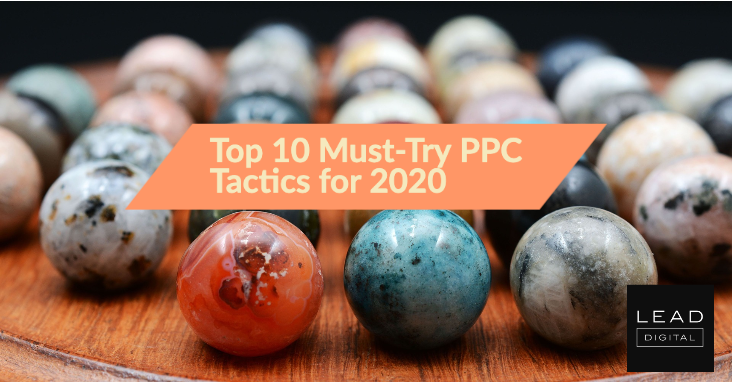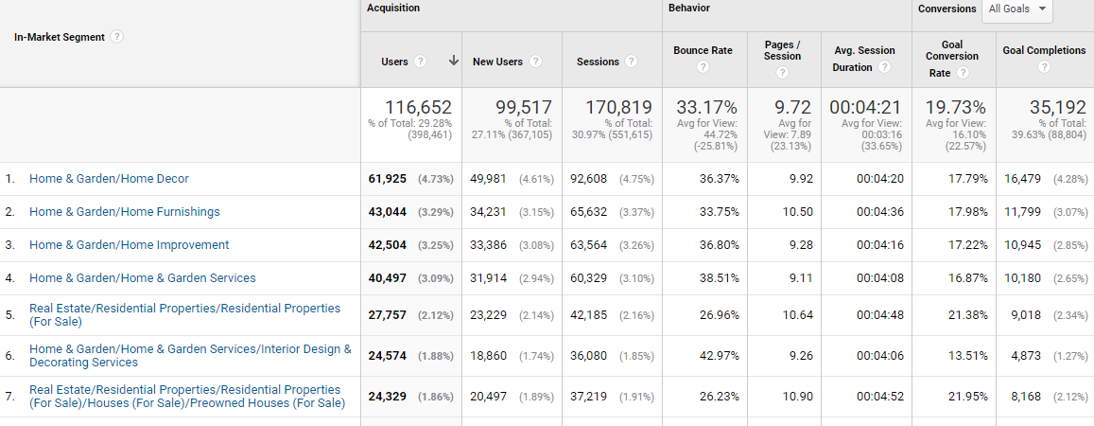 If you want your PPC campaigns to remain effective in 2020, you have no choice but to evolve. In some cases, that evolution will mean thinking about things very differently than before.
If you want your PPC campaigns to remain effective in 2020, you have no choice but to evolve. In some cases, that evolution will mean thinking about things very differently than before.
If your program isn’t in an advanced state already, here are ten tactics you must try this year (in no particular order).
1. Layered Audience: Demographics & Affinity
It’s no secret that a campaign will perform best when you clearly define who it’s meant for.
By using the combined power of Google Ads and Analytics, you’re able to give your campaigns a better chance of success by targeting those most likely to take the desired action. I look at demographics and affinity as a more of a passive “who they are” classification.
The screenshot below shows current site visitors who fall into the affinity category of “Pet Lovers”. Those specific customers convert 46% better than the average. That’s an audience worth engaging:

2. Layered Audience: In Market
While Demographics and Affinity audiences are more about “who they are”, In-Market audiences are about “what they’re doing”.
In this case, this an audience who is exhibiting certain online behavior consistent with those who are actively “in the market” for a product or service.

3. Layered Audience: Life Events
Anyone who has ever run a Direct Response campaign (even in the pre-digital days) knows that reaching potential customers at key life event stages can be critical to its performance.
If you’ve ever gotten a mortgage (or even just moved to a new address), you’ve probably noticed an increase in the volume of offers you receive. There’s a very good reason for that – data shows it’s effective.
Google Ads allows you to run promotions for specific “life events” on a limited basis today. It’s limited because:
- You’re restricted to life events concerning:
- College graduation.
- Marriage.
- Moving.
- It’s currently available for Gmail and YouTube campaigns.
They launched these targeting capabilities in the last couple of years and hopefully, it will eventually be expanded as a targeting layer for additional events and platforms.
4. Running One Responsive Search Ad (RSA) Per Ad Group
I know. You tried it and were less than impressed. I get it.
Try it again, but this time on some keywords and audiences that might not be your core focus.
If your campaigns are anything like most, you have some core audiences and set of keyword variations that make up the bulk of the conversions and revenues.
Test RSAs to try and find success outside that core audience. The biggest things to remember:
- The key word in machine learning is “learning.” In order to “learn” what works, the “machine” also must learn what doesn’t. That takes time and a bit of volume to get a good read.
- You still need to input some quality headlines (minimum 3, up to 15) and descriptions (minimum 2, up to 4). If those are sub-quality, no amount of machine learning will help your campaigns.



